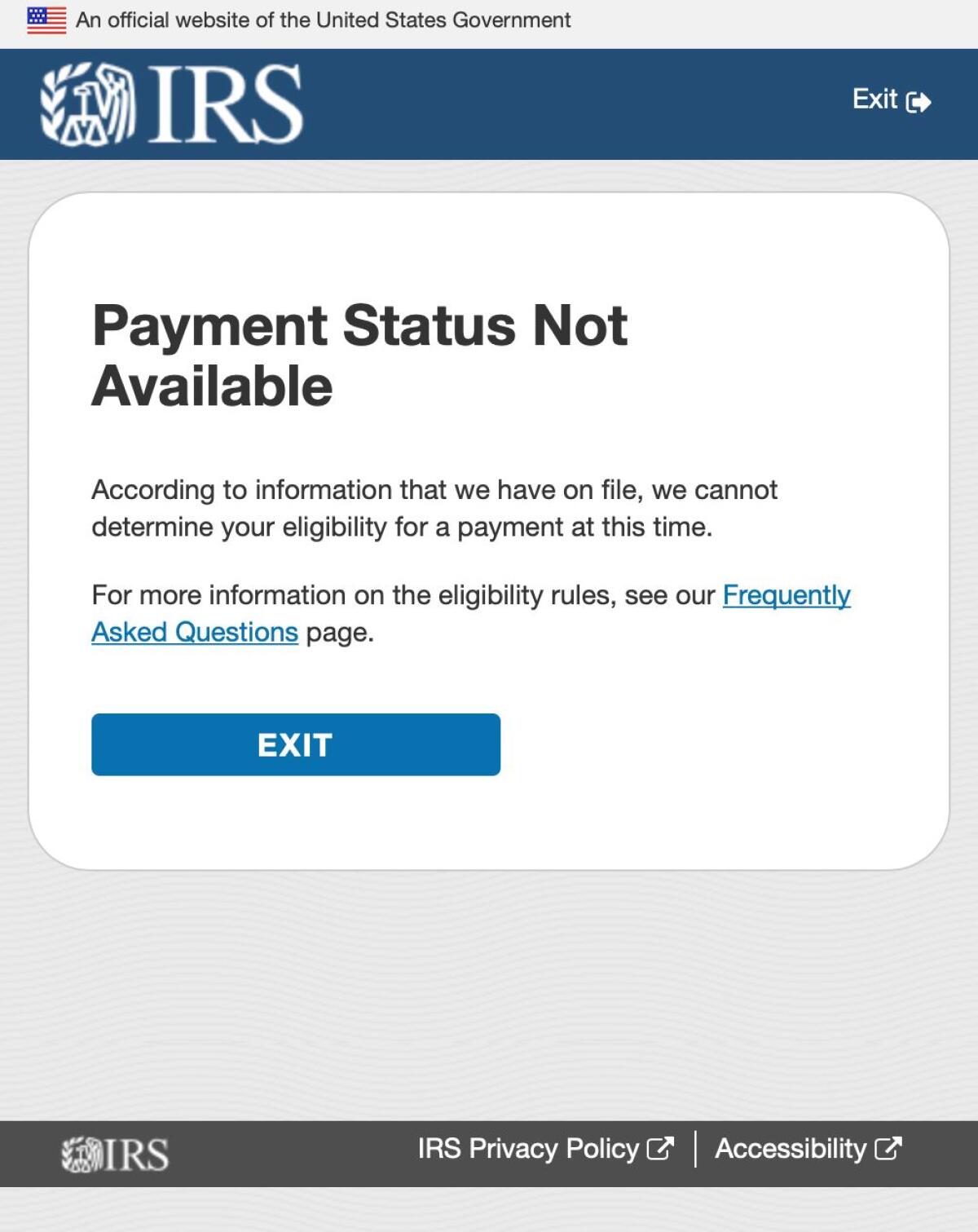Stimulus money for Social Security recipients is finally on the way

- Share via
Dear Liz: My mother filed a paper return for 2019 in early March but hasn’t received her refund yet. Also, she hasn’t received the stimulus check to which she is entitled. She receives Supplemental Security Income via direct deposit and she included her banking info on her tax return for direct deposit. Given the IRS’ limited staffing, when might she receive her money? Will she still receive her stimulus check if many more months pass before the IRS processes her tax return?
Answer: Your mom may have already received her stimulus payment by the time you read this. The Social Security Administration said Tuesday that it had started sending payments to SSI recipients.
The best way to check her refund status is via the IRS site. People who filed electronically can check their refund status 24 hours after filing. When a paper return is filed, people should wait four weeks before checking. She’ll need to enter her Social Security number, filing status and exact amount of her expected refund.
When an executor doesn’t heed the will
Dear Liz: My dad’s will clearly divided his estate equally between his two sons. By the time Dad died, my brother had two kids. After the funeral, my sister-in-law sat me down and told me that everything will be divided into three parts. I would get one-third and they get two-thirds, because they had the kids. This was not a request; it was, “That’s the way it’s going to be and there’s nothing you can do about it.” My brother, who was the executor, was nowhere to be seen — a pattern when dealing with money issues. This was many years ago. I was a student at the time. I went along with it but wonder to this day about the fairness of the situation.
Answer: Wonder no more. If the situation was as you describe and your brother ignored your father’s will, then he wasn’t just unfair to you. He violated the law.
Executors are supposed to follow the will’s directions to the best of their ability. If they don’t, they can be held personally responsible. But each state has statutes of limitation that give you only a certain amount of time to file a civil lawsuit in these situations. You may have a bit more time if you were a minor when all this happened, but you’d want to consult an attorney to discuss your options.
You wouldn’t be the first person done out of an inheritance by a self-dealing sibling, unfortunately. This should be a reminder to parents not to reflexively choose the oldest child, or indeed any child, to fill this role without thinking about the child’s character.
When a Roth IRA makes sense
Dear Liz: I have some money saved in a brokerage account, over and above my maximum 401(k) contribution. I just turned 60. Is it advantageous to move that money into a Roth IRA or should I keep it in the brokerage account?
Answer: If you suspect you’ll need this money within five years, then you probably should leave it in the brokerage account (and move it to cash, since money needed within the next few years should not be in the stock market). Otherwise, there’s little downside to moving some of the money to a Roth IRA, if you can, and plenty of upside.
Having money in a Roth gives you “tax diversification,” or a potentially tax-free bucket of money to draw from or leave alone as you see fit. That’s in contrast to 401(k)s, regular IRAs and other retirement plans, which typically require withdrawals to begin at age 72.
You can always withdraw an amount equal to your contributions without paying taxes or penalties. Once the account is at least 5 years old and you’re over 59½, whichever comes later, you also can withdraw any earnings without tax or penalty.
You can contribute up to $7,000 to a Roth this year, assuming you have earned income of at least that amount and your modified adjusted gross income is less than $124,000 if you’re single or $196,000 if you’re married filing jointly. (The contribution limit is $6,000 for people under 50.) If your income is above those limits, your ability to contribute to a Roth starts to phase out. The ability to contribute directly to a Roth ends when your modified adjusted gross income is over $139,000 for singles and $206,000 for married couples.
Liz Weston, Certified Financial Planner, is a personal finance columnist for NerdWallet. Questions may be sent to her at 3940 Laurel Canyon, No. 238, Studio City, CA 91604, or by using the “Contact” form at asklizweston.com.
More to Read
Inside the business of entertainment
The Wide Shot brings you news, analysis and insights on everything from streaming wars to production — and what it all means for the future.
You may occasionally receive promotional content from the Los Angeles Times.










